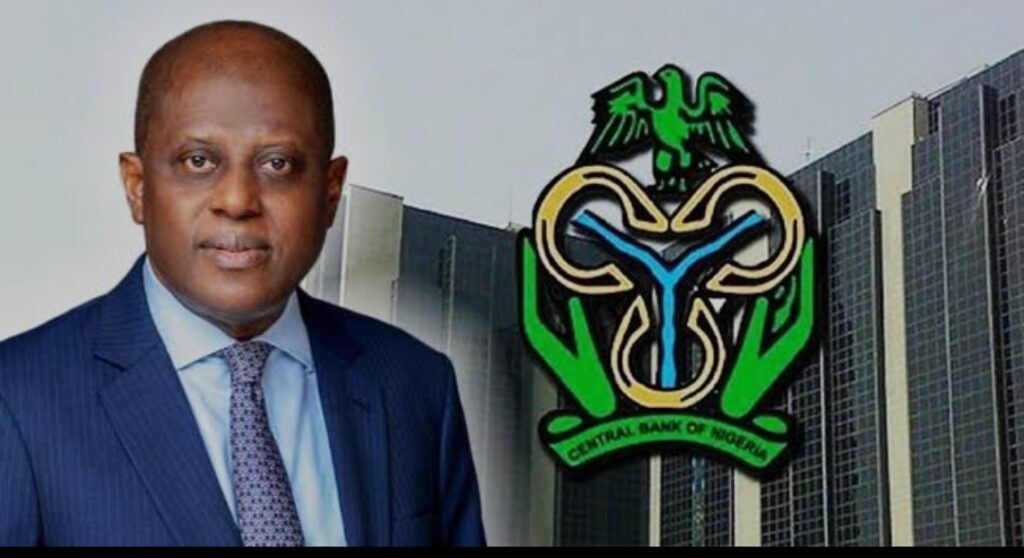
The CBN has issued Nigerian BDCs a six-month ultimatum to reapply for operating licences after setting a new licensing regime
The Central Bank of Nigeria (CBN) on Wednesday directed all existing Bureau De Change (BDCs) operators in the country and promoters of new entrants to apply again for new operating permits of their choice.
The directive came as the apex bank introduced fresh regulatory and supervisory guidelines for BDC operations, setting a new licensing regime and capital requirement for the sub-sector.
The framework categorised BDCs into Tiers One and Two, adding that while the former may operate in any state of the federation and the Federal Capital Territory (FCT), the latter is permitted to operate only in one state of the federation or the FCT.The central bank also pegged the minimum capital requirement for a national BDC at N2 billion, and N500 million for a state operator.
In addition, the central bank issued a six-month deadline for the BDCs to meet the minimum capital requirements for the license category applied for from the effective date of the guidelines.
The apex bank conveyed the new development in a circular dated May 22, 2024, and signed by CBN Director, Financial Policy and Regulation Department, Mr. Haruna Mustafa, which was addressed to all BDCs and stakeholders in the financial services industry.
The bank stated that the guidelines were part of its reforms to reposition the sub-sector to play its envisioned role in the country’s foreign exchange (FX) market.
The regulation introduced new licensing requirements and categories of BDCs as well as revised the permissible activities, financial requirements, corporate governance requirements, and AML/CFT/CPF provisions for BDCs.
The bank further stated that applicants for a new BDC license were required to meet the conditions for the grant of license in accordance with the tier or category of BDC chosen, as stipulated in the guidelines.
CBN barred commercial, merchant, non-interest and payment service banks; financial holding companies; Other Financial Institutions (OFIs), including International Money Transfer Operators and payment service providers as well as serving staff of financial services regulatory and supervisory agencies, among others, from participating in the ownership of BDCs, directly or indirectly.
The apex bank stated that under the regulatory dispensation, a BDC or its franchisee shall not engage in street-trading of foreign currencies; maintain any type of account for any member of the public, including accepting any asset for safe keeping/custody; take deposits from or grant loans to members of the public in any currency and in any form as well as engage in retail sale of foreign currencies to non-individuals, except for Business Travel Allowance (BTA).
Furthermore, in sourcing for foreign currencies by BDCs, sellers of the equivalent of $10,000 and above to a BDC were required to declare the source of the foreign exchange and comply with all AML/CFT/CPF regulations and foreign exchange laws and regulations.Customers might also sell foreign currencies in their individual domiciliary accounts with Nigerian banks to BDCs, the central bank added.The regulation also specified the minimum and maximum number of directors on the board of a BDC. It said Tier 1 shall have a minimum of five and maximum of seven directors, while Tier 2 shall require a minimum of three and maximum of five directors.
CBN, among other things, said, “The number of independent non-executive directors (INEDs) shall be at least one for Tier 1 and Tier 2 BDCs, provided that where a BDC is publicly listed, it shall comply with the applicable provisions of CAMA 2020, as amended.
“A Tier 1 BDC shall have an Executive Director (ED) other than the MD/CEO. A Tier 2 BDC may have an ED apart from the MD/CEO. No Board of a BDC shall comprise only one gender.
To achieve gender diversity and promote a gender-inclusive Board, BDCs shall take a practical approach to women’s economic empowerment in line with the Nigerian Sustainable Banking Principles.

